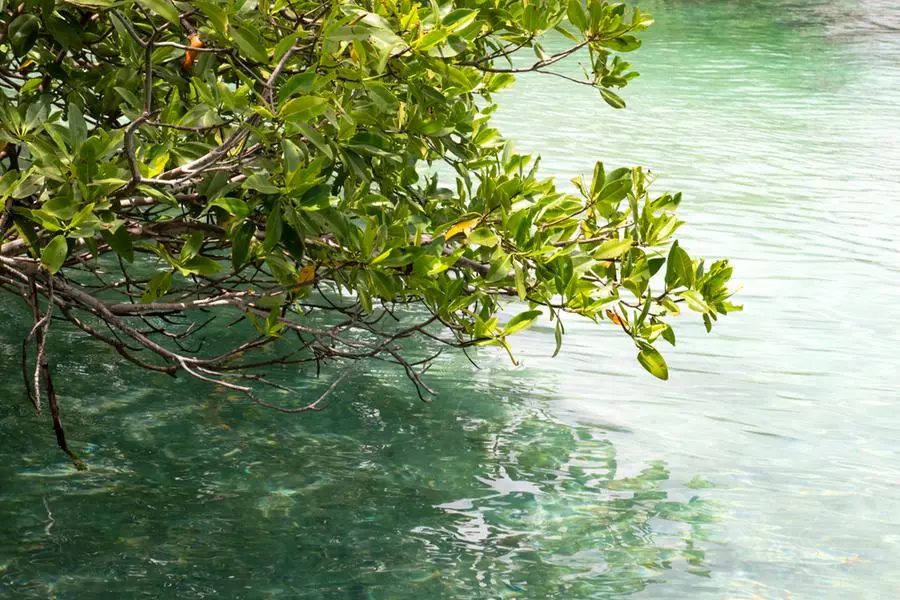PHOTO
Riyadh: Mangrove trees occupy only 0.5% of the global coastal areas. Today, it is essential to protect and preserve these trees to achieve ecosystem sustainability and combat any threats that may jeopardize this valuable natural treasure.
Mangrove forests are among the most stunning and remarkable natural ecosystems on the planet. They have the crucial function of safeguarding beaches from erosion, purifying water from pollutants, and storing carbon, thus helping mitigate climate change.
Mangroves are recognized for their distinctive roots, which intricately interweave above and below the water's surface, giving the trees a charming appearance that reflects nature's beauty and grace.
Mangroves are also renowned for their biodiversity, rendering them a crucial habitat that sustains wildlife and marine life. They are home to birds and fish, and offer secure refuge to the offspring of many marine species. This enhances the marine life cycle and contributes to the sustainability of fish populations.
Mangrove forests yield economic and social advantages, serving as crucial sources of livelihood for numerous local communities reliant on fishing and crustacean collection. Furthermore, they are an appealing tourist destination for nature and adventure enthusiasts, offering opportunities for activities like kayaking amidst the trees and the chance to explore the captivating natural beauty of the remarkable locales hosting them.
Despite their rarity, importance, and vitality to the ecosystem, mangrove trees are under threat in many parts of the world due to human activity. Pollution from construction and manufacturing, shrimp farming, and urban expansion have led to their destruction and decline in their numbers, directly contributing to the loss of these valuable trees.
The Saudi Ministry of Environment, Water and Agriculture, and the National Centre for Vegetation Cover Development and Combating Desertification (NCVC), acknowledging the significance of mangrove trees, have exerted substantial efforts to protect them by carrying out initiatives in this regard that are important both at regional and at international levels. It has cultivated mangroves along the coastlines of the Red Sea and the Arabian Gulf, effectively rehabilitating degraded sites, in line with the goals of the Saudi Green Initiative. The Kingdom also conducts research to address the challenges of mangrove restoration in harsh environments.
NCVC is committed to protecting and growing mangrove forests and has initiated multiple development projects along the Kingdom's coasts in collaboration with public, private, and non-profit partners.
Currently, NCVC is planting 13 million mangrove trees along the Kingdom’s coasts as part of the national target of planting 100 million trees by 2030. Furthermore, it works to raise awareness among local communities about the significance of mangroves and educates them on preservation methods.
The rehabilitation of mangrove trees necessitates the collaborative effort of governments, non-governmental organizations, and local communities. The efforts entailed in it may involve the establishment of legal policies for forest protection, the advancement of scientific research to identify the most effective rehabilitation methods, and the allocation of funding for project implementation. Through such integrated initiatives, substantial strides can be made in conserving mangrove forests and restoring their crucial role in the global ecosystem.
The International Day for the Conservation of the Mangrove Ecosystem is observed annually on July 26 to raise awareness about the significance of this unique, special, and vulnerable ecological unit, and advocate for sustainable management, utilization, and conservation solutions.





















